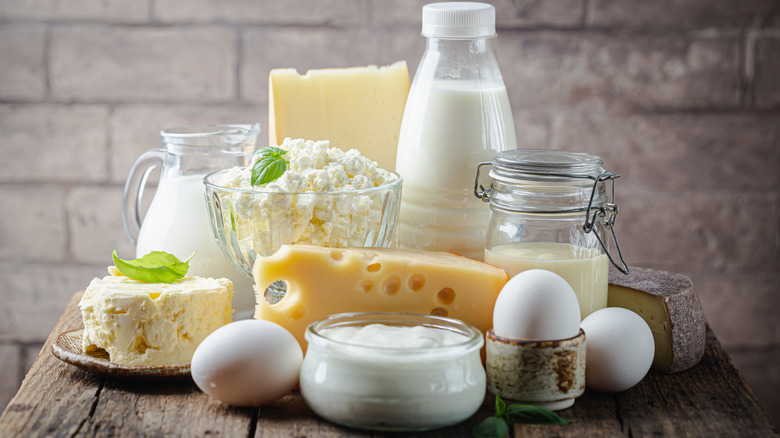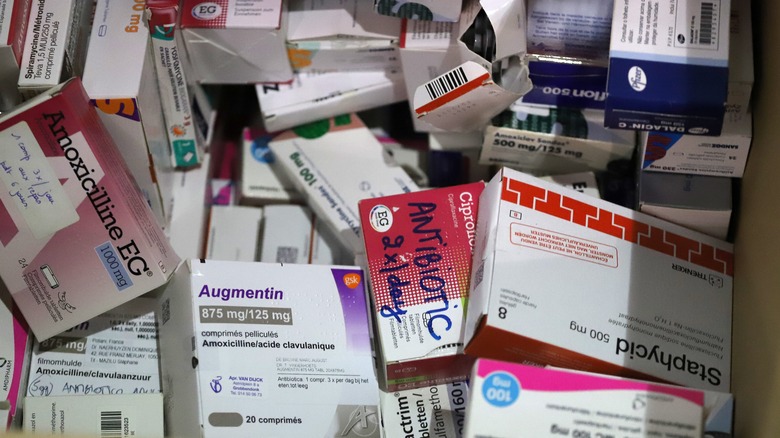Medications That Could Have Negative Interactions With Dairy
Dairy products are made from milk. This group includes such foods as milk, yogurt, and cheese. Dairy foods can be delicious and good for you too. They are rich in vital nutrients like calcium, potassium, vitamin D, and protein, among others, says MyPlate. Recommendations for diary consumption vary based on several factors, including your age, sex, height, weight, and how active you are, but a general recommendation for the average adult is the equivalent of three cups per day.
When it comes to certain medications, however, you may want to avoid eating dairy foods, at least for a few hours. According to Everyday Health, there may be harmful interactions between milk products and the drug's ingredients. In these cases, MyPlate suggests calcium-fortified juices or plant-based milks, canned fish, tofu made with calcium sulfate, tahini, and certain leafy greens as good alternatives to get the vitamins and minerals that dairy contains.
Drugs that might interact with dairy foods
If you are taking antibiotics like the fluoroquinolones Cipro (ciprofloxacin), Levaquin (levofloxacin), and Avelox (moxifloxacin), or certain tetracyclines, you may experience interactions between these and dairy foods, warns Everyday Health. They write that dairy products can bind to the medication and hinder its absorption. This can make the medication less effective, according to GoodRx.
You don't need to strictly avoid dairy products, but you do need to leave some space in between eating them and taking your pill. Everyday Health suggests avoiding dairy at least two hours before and six hours after you swallow your medication.
Per GoodRx, other medications that can be less effective when consumed shortly before or after dairy products include bisphosphonates, iron supplements, and thyroid medications.
In addition, a type of antidepressant called monoamine oxidase inhibitors (MAOIs) can interact with a specific type of dairy product: hard, mature, or aged cheeses. Verywell Mind says that aged cheeses are quite high in an amino acid called tyramine, which is capable of affecting blood pressure. MAOIs work by inhibiting an enzyme that breaks down tyramine. This can cause tyramine to build up to too high of a level in the body, making blood pressure rise to a life-threatening degree (hypertensive crisis).
Anyone taking an MAOI should completely avoid aged cheese as well as other foods that are high in tyramine. WebMD lists cured or processed meats, pickled or fermented vegetables, and fermented alcoholic beverages as being particularly high in tyramine.


